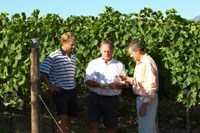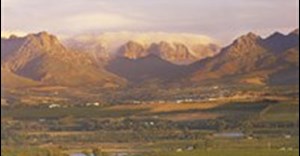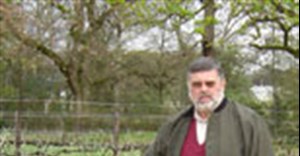
Another Elgin Vintners partner achieves BWI champion status

It joins 21 other wine farms and becomes the second Elgin Vintners' partner, after Eikenhof Farm, owned by Alastair Moodie, to achieve this status.
Elgin Vintners is a partnership of five dedicated grape growers who, believing in the excellence of the Elgin terroir and diversity of their vineyards, have combined their resources to cultivate, produce and market their range of fine quality Elgin Valley wines.
Elgin Orchards, situated on the ecologically sensitive Palmiet River, is the only wine farm on the western side of the Elgin Valley plateau to become a BWI Champion. Elgin Orchards has dedicated 116 hectares of its 771-hectare farm, named Oudebrug, to conservation.
Conservation management plan
The conservation management plan (a core requirement in becoming a BWI Champion) involves the protection and maintenance of 6.6 km of the riparian zone on the Palmiet River, one of the most important watercourses in the Western Cape. A riparian zone is the interface between land and river.
The Palmiet Riet (reed), which grows in this zone on the farm, acts as a filtering system, naturally cleansing the water. The dense Riet also creates a lively ecosystem, creating a home for amphibians, insects, birds, reptiles and fish species. The clearing the mass of black wattles, which virtually suffocated the flow of the water, has seen an encouraging proliferation of Riet growth and a commensurate improvement in water quality. Importantly, it also now provides more water for Elgin Orchards' vineyards and orchards without negatively affecting the users downstream.
Elgin Orchards' annual alien-clearing budget is R300 000. A dedicated team, permanently employed by it, maintains the cleared areas. This project was partly initiated to provide work for the unemployed, focussing on retrenched forestry men. Over the past 10 years, it has done extensive work clearing the Palmiet River of alien plant species such as Port Jackson, Acacia tree, Black wattle, Blue gum and Poplar. Natural vegetation now flourishes and there are frequent sightings of new fynbos species. Resident otters and two endemic (to the Western Cape) fish species are an indication that the ecology, in particular that of the Palmiet River, is in good condition and illustrate the success so far of the restoration project.
Historical find
Whilst clearing alien vegetation two original canons, which, long ago, were fired to alert farmers to the arrival of ships in Table Bay, were salvaged from the Palmiet River by a team. En route to the harbour to sell their produce, these farmers' wagons forded the Palmiet River where the present bridge now stands, hence the farm's name Oudebrug.











